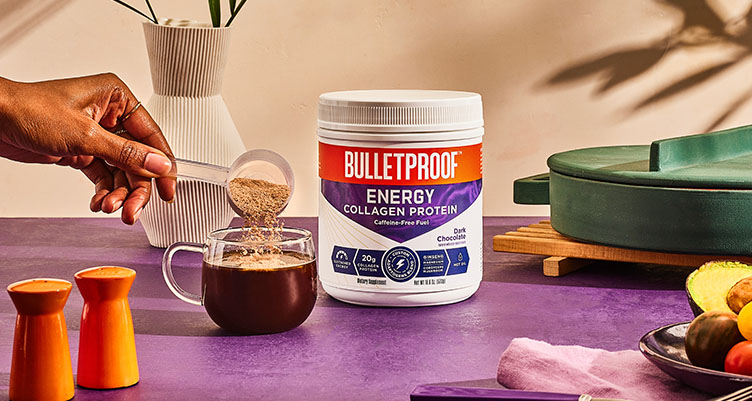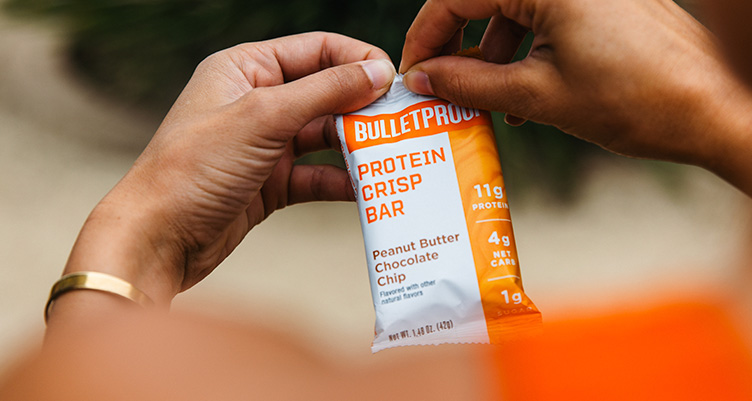Why You’re Not Losing Weight on the CICO Diet

- What is the CICO diet? CICO (calories in vs. calories out) is a popular approach to weight loss because it’s simple—you eat fewer calories than you burn.
- The problem? CICO overlooks the fact that calorie quality is as important as quantity.
- Find out how to turn the principles of the CICO diet into sustainable choices that help you feel satiated.
The CICO diet (calories in vs. calories out) pushes the idea that to lose weight, you only need to eat fewer calories than you burn each day.
This diet suggests that it doesn’t matter what you eat—you can still lose weight as long as you stay within your calorie goals. For people who struggle to eat a clean and healthy diet, CICO sounds perfect. After all, it takes all the questions out of food choices and turns weight loss into simple math.
Unfortunately, there’s much more to the equation. Here’s what the CICO diet gets wrong—and what to do instead.
What is the CICO diet?

When you’re dieting the CICO way, you’re focused on your daily calorie intake.
In order to get that personalized calorie number, calculate your total daily energy expenditure (aka TDEE), and then eat fewer calories than you burn. You can calculate your TDEE using macro tracker apps or an online TDEE calculator.
For people looking for a simple solution to weight management, the CICO diet is a great first step. But while there are certainly numerous success stories out there, the CICO diet isn’t the best diet for healthy living. It’s a strategy that can help some people lose weight by creating a calorie deficit.
With CICO, you could eat ice cream for three meals a day, as long as you don’t exceed your total allotted calories for the day. If that leads to weight loss, your body likely isn’t getting the nutrients it needs for its overall health. You still need to balance your plate with quality fats, protein and carbohydrates from whole foods.
In addition, staying in a caloric deficit isn’t a long-term approach to weight management.
Over time, cutting calories can actually do more harm than good.[1] If your meal plan puts you in a caloric deficit for too long, your body will respond by slowing down your metabolism. And if you’re dealing with food sensitivities or poor digestion, cutting calories isn’t necessarily going to help you feel better.
All of these factors can lead to weight loss plateaus.
Related: How to Increase Your Metabolism Without Pills or Boosters
Why you might not see results on the CICO diet
Losing weight and creating a calorie deficit are closely related.[2] But there are few major caveats to this rule.
When it comes to diet, quality matters

First, not all calories are created equal because foods affect the body differently.
For instance, a 400-calorie bagel eaten first thing in the morning spikes your insulin levels and causes a sugar and energy crash a few hours later. You will be both hungry and tired, making it harder to adhere to your daily calorie goal.
In comparison, a 400-calorie breakfast that prioritizes protein and quality fats will keep you full and focused all morning long. Here’s why: When it comes to macronutrients, dietary fat and protein digest slower compared with carbohydrates, which supports satiety.
Protein also boosts your metabolic rate and can increase the amount of calories you burn throughout the day due to its high thermic effect.[3]
When you’re building your meals, here’s what to keep in mind:
- Protein: Reach for high quality, complete proteins from whole food sources. Animal sources such as meat and seafood contain all essential amino acids, while plant-based sources usually lack one or more (but can be combined so they’re considered complete).[4]
- Fats: Choose quality fats. What does that mean? These foods contain higher levels of stable fatty acids like omega-3s, monounsaturated fats and saturated fats. Your brain also thrives on fats as an energy source—that’s one of the reasons Bulletproof Brain Octane C8 MCT Oil boosts cognitive function, even if you’re not on the keto diet.[5]
- Carbohydrates: There’s a big difference between white bread and a sweet potato. Bread digests quickly and spikes your blood sugar, while the potato contains complex molecules that take time to break down (and gives you fiber). Prioritize complex carbohydrates over simple carbohydrates, and consider eating fewer carbohydrates overall. Learn about low-carb diets.
Bulletproof tip: If you’re looking to add high quality protein and fat to your day, Bulletproof Energy Collagen Protein provides all 9 essential amino acids, along with MCT oil to provide an all-in-one solution for sustained energy. Or if you need some on-the-go fuel, reach for a Bulletproof Collagen Protein Bar.
Your body needs nutrients, not just calories

If calories were all that mattered, all diets would work equally well.[6] But different diets with the same caloric intake can lead to different weight loss results. For instance, a 1,500 calorie-a-day Paleo diet doesn’t necessarily yield the same results as a 1,500 calorie-a-day dirty keto diet.
When your focus is only on calories, you aren’t thinking about the health benefits of important nutrients like fiber, protein, fat and carbohydrates. Getting the right ratio helps your body function at its best.
However, finding the right balance of these nutrients varies for everyone and can change depending on your activity levels, age and gender. (You know this is true if you’ve ever felt hungrier the day after a long hike or especially sore after a big workout—your body is asking for food to repair those muscles!)
Here’s an example: Protein recommendations for the general public is 0.8 grams per kilogram of body weight.[7] But if you’re only looking at your calorie intake, you’re not considering how much protein you get in a day.[8] That’s important because protein supports everything from healthy cells to strong muscles—and if you’re highly active, you likely need more protein.
In the end, looking at calorie numbers isn’t enough to understand what you need to feel your best. It’s a great start. But if your body is asking for something more, pay attention to your personal biology—not just a single number.
Should I count calories, or do keto? Or something else?

Plenty of popular diets work by creating a calorie deficit.
If you embrace intermittent fasting, you eliminate early-morning donuts and late-night snacks. The Mediterranean diet guides you toward eating more whole foods—like fruits, vegetables and whole grains—while eliminating calorie-dense processed foods. And the keto diet restricts carbohydrate intake, which also eliminates calorie-dense foods like pasta and bread.
That said, if you are looking for a diet with a more favorable metabolic response than a calorie-restricted diet, research shows that a ketogenic diet (high-fat, moderate-protein and low-carb) works for many people.[9] In the absence of carbs, the body learns to use fat as fuel—no calorie-counting required.
It all comes down to which diet you prefer and works best for you. As a starting point, healthy eating starts with eating nutrient-dense whole foods and cutting back on added sugar and ultra-processed foods. If you have questions, talk to an expert such as a dietitian or nutritionist who can set up a diet plan that meets your personal needs.
Food isn’t the only thing that impacts your health. Your overall wellness requires plenty of sleep, physical activity and managing stress. Find out how to sleep better with science-backed sleep tips.
Sign up for early access to sales, product launches, the latest Bulletproof news and more!
This article was originally published June 17, 2021 and has been updated with new content.



